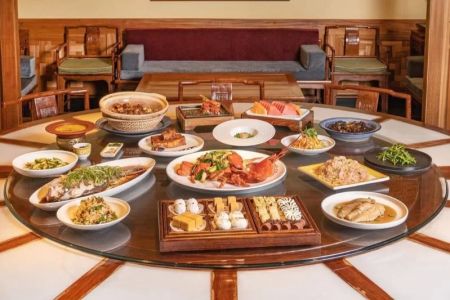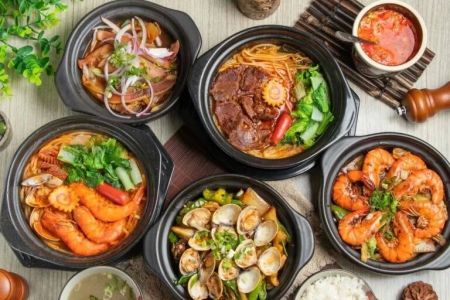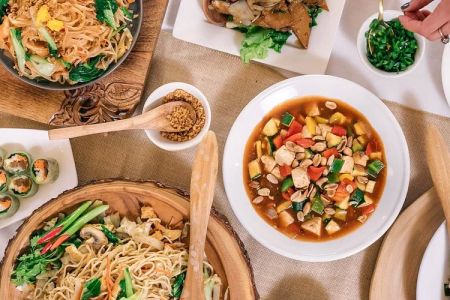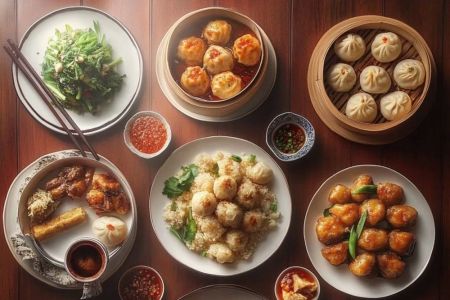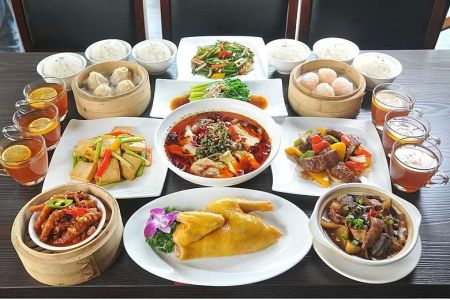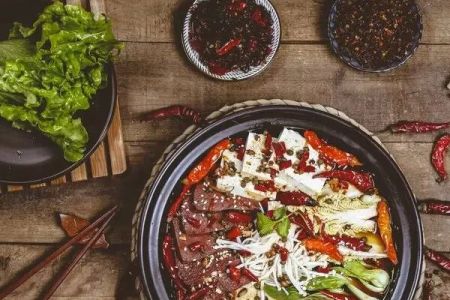How to Enjoy Traditional Chinese Tea During Meals
- 1. The Importance of Tea in Chinese Culture
- 2. Choosing the Right Chinese Tea for Meals
- 3. Pairing Tea with Chinese Dishes
- 4. The Rituals of Drinking Tea During Meals
- 5. How to Serve Tea at Home for a Traditional Experience
- 6. Health Benefits of Drinking Tea During Meals
The Importance of Tea in Chinese Culture
Tea has been an integral part of Chinese culture for centuries, especially during meals. The tradition of enjoying tea is not just about the drink itself but is a way of enhancing the dining experience. Tea is seen as a symbol of hospitality and respect in Chinese culture. It is believed that drinking tea helps with digestion, clears the palate between courses, and provides a refreshing balance to the richness of food. When you serve or enjoy tea at a meal, you’re not only following a tradition but also embracing an age-old practice that reflects mindfulness and harmony with nature.
Choosing the Right Chinese Tea for Meals
When selecting the best tea for your meal, it’s essential to consider the flavors and aromas of the dishes you’re serving. For example, light and delicate teas, like green tea or white tea, pair well with lighter meals, such as fish or vegetables. These teas are subtly refreshing and won’t overpower the flavors of your meal. On the other hand, richer teas, like oolong or black tea, complement heartier meals like meats or stews, as they have stronger flavors that can stand up to the heavier taste of the food. A personal favorite in many households is the jasmine tea, with its fragrant and floral notes that match well with almost any Chinese dish.
Pairing Tea with Chinese Dishes
Pairing the right tea with your meal is an art form that can enhance the overall dining experience. In Chinese cuisine, certain teas are preferred with specific dishes. For example, the traditional dim sum meal is often accompanied by a pot of oolong tea, which aids digestion after the meal’s rich, flavorful bite-sized treats. If you’re having a spicy Sichuan dish, pairing it with a black tea like Keemun can provide a soothing contrast to the heat of the food. Meanwhile, light teas such as Longjing (Dragon Well) are perfect for delicate dishes such as steamed fish or tofu. Experimenting with various tea pairings will allow you to discover the perfect balance for your palate.
The Rituals of Drinking Tea During Meals
The act of drinking tea in China is deeply rooted in rituals that vary depending on region and occasion. One common practice is the “gong fu” tea ceremony, which involves brewing tea in a small teapot and serving it in small cups. This method brings out the full flavor of the tea and encourages the drinker to savor each sip. During meals, tea is often served in small, elegant teacups, and guests are invited to sip slowly, appreciating the harmony between the tea and the food. The focus on mindfulness while drinking tea creates a calming atmosphere, making the meal not just about eating but about connecting with tradition.
How to Serve Tea at Home for a Traditional Experience
If you’re looking to replicate the traditional Chinese tea experience at home, it’s essential to focus on the details. Start by selecting the right tea leaves, such as green tea, oolong, or black tea. Invest in a traditional teapot and small teacups, as these enhance the ceremony’s aesthetic. When brewing tea, pay attention to water temperature – for delicate teas, use cooler water, while black teas and oolongs require boiling water. Steep the tea for the appropriate amount of time; over-steeping can cause bitterness. Serve the tea in small cups, and invite your guests to enjoy it slowly, savoring the flavors that unfold with each sip.
Health Benefits of Drinking Tea During Meals
Drinking tea during meals isn’t just about the flavors or traditions; it also offers numerous health benefits. Traditional Chinese teas, such as green tea and oolong, are rich in antioxidants that support digestion, boost metabolism, and help regulate blood sugar levels. Tea has also been known to help cleanse the palate between courses, preventing a buildup of heavy or greasy flavors in the mouth. Drinking tea during meals may also help reduce bloating and aid in the absorption of nutrients from your food. Plus, the act of sipping tea during a meal promotes relaxation, which can aid in stress reduction and better overall digestion.
Now that you understand how to enjoy traditional Chinese tea during meals, it’s time to elevate your dining experience. If you’re looking to purchase high-quality teas, visit Chinese Food to explore a wide selection of teas that will help you recreate this ancient tradition in your own home.


